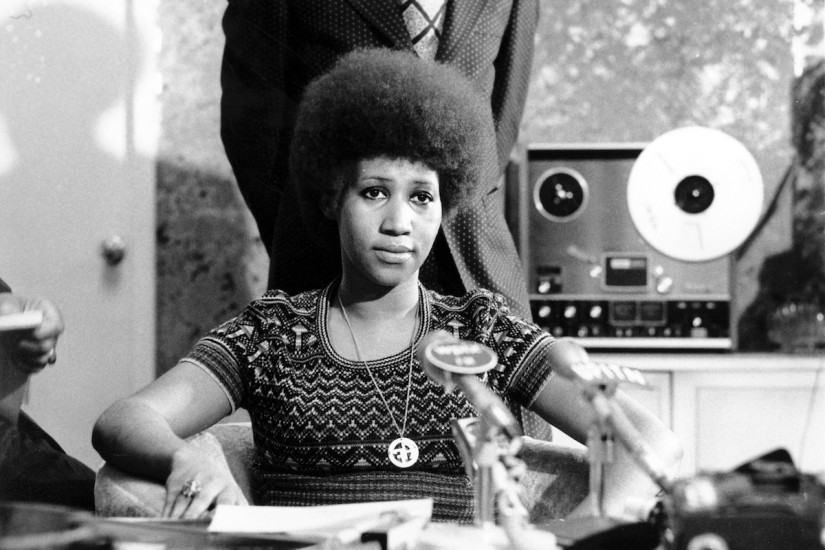Franklin’s 76 years on Earth bookended a grand arc of tumult, letdowns, progress, setbacks, terror, and hope in American history. That in itself might not be a remarkable feat so much as a reminder that all black people older than 53 have seen and lived through hell. But Aretha—and that first name is sufficient, as it was in black churches and parlors for half a century—was an architect of a movement as much as a witness to it. She toured with the actors Harry Belafonte and Sidney Poitier to raise money for King’s Southern Christian Leadership Conference in 1967, when the organization was in dire financial straits and was attempting to embark on a Poor People’s Campaign. She was an activist who strained to keep a movement going even after King’s assassination, and who worked to support the Black Panthers and attempted to post bail to free the activist Angela Davis from jail. She loved black people. In this country, that simple fact was radical enough.
And now Aretha is dead.
It seems we are burying more and more of the old royalty these days. That’s the way of the world, and in the liberative and redemptive tradition of the Black Gospel, the passings of the elders are ultimate moments of freedom and joy as much as times for sadness. But still, Aretha’s death is a loss, and it should prompt reflection. What does it mean to bury the Queen of Soul?
Aside from the revivals that come about every few years, soul is mostly a thing Americans look back on and remember fondly. In recalling a romantic and powerful era of American history, soul is a bit like Latin: an inert progenitor language once spoken by people who somehow seemed larger and more full of life than the models made today. In Aretha’s runs, Sam’s grandeur, Otis’s gravelly urgency, and the splendor of Stax horns, there’s some element of impossibility to a youngish observer like myself. It’s as if the exodus that produced Aretha became music itself, and for a time produced songs and sounds that can be approached, but never truly replicated.
